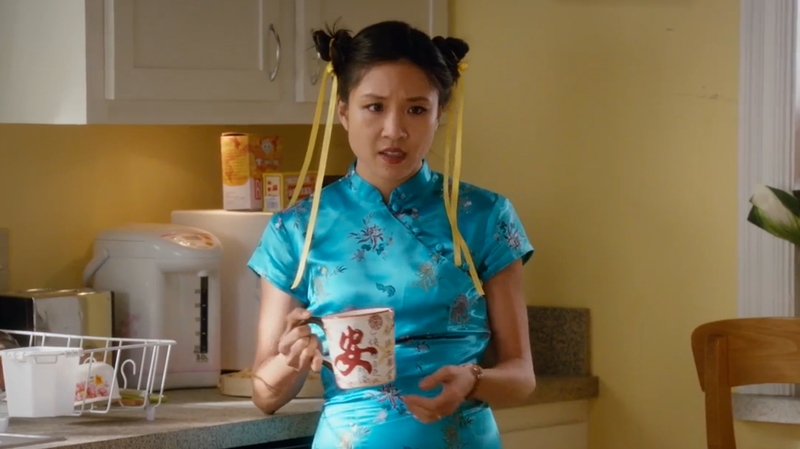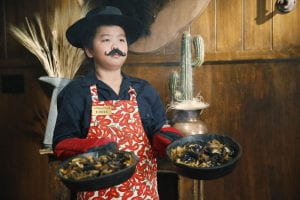Today, I’m going to take us ALL the way back to the season one finale of Fresh Off the Boat, “So Chineez.” True to the underlying theme of the show, this episode directly addresses the issue of being Chinese in a mostly white community, and losing a grip on one’s identity. This is actually a very deep, existential problem that extends far beyond the realm of one’s culture, but the show keeps it reigned in and lighthearted in nature, true to its genre.
As I mentioned in a previous post, the show takes few things seriously. Cultural identity is one of those things. While it becomes the target of some jokes along the way, most of the discussion, and even the context of the jokes, in the episode is framed in order to tackle this issue and make it more approachable for the average person watching the show. In this episode, Jessica is concerned because she feels that she is letting the boys down by losing her grasp on her heritage and culture and failing to expose them to it. And, true to character, she overreacts and goes overboard trying to get them involved in Chinese culture.
As you could probably guess, this is a struggle that I do not relate to at all. I don’t have any kids (thank goodness) and I’m not culturally isolated by any stretch of the imagination. However, the presentation of this dilemma in the episode really allowed me to feel what it would be like to be in this situation. I definitely had seen the value of preserving one’s culture before, but I was not aware of such a struggle to do that. As such, the show does a good job addressing the issue in a way that gets people involved, but also retaining its voice.

Jessica doing what she does best: the most
In the end, Louis comes in clutch and saves the day, reminding his wife of all the things they do that keep them plugged in to their roots. The episode ends in a very oddly perfect visual metaphor. The family gets a Florida vanity plate with the plate number “SOCHINEEZ.” I don’t think there would be a better way to represent the meshing of these two cultures.

The only reason the Huangs aren’t getting into the good place














